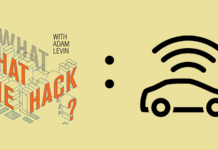Sidewalk Labs, a subsidiary of Google’s parent company Alphabet, is the go-to story for Data Privacy Day with its new “user-friendly” tool called Replica, which allows city planners see “how, when, and where people travel in urban areas.”
The Intercept’s explainer details a troubling use of consumer data. “Thanks for all you do,” could be Replica initiative’s tagline, since it seems to aggregate a huge amount of presumably phone-generated data to model the way cities work. It has been used by Kansas City, Portland, and Chicago area clients.
“Replica provides a full set of baseline travel measures that are very difficult to gather and maintain today,” Nick Bowden of Sidewalk Labs said, “including the total number of people on a highway or local street network, what mode they’re using (car, transit, bike, or foot), and their trip purpose (commuting to work, going shopping, heading to school).”
The system devised by Sidewalk uses consumer cellphone data that has been de-identified and then used to model anonymized city-wide activity. The problems here are legion. First, according to the Intercept report it’s not clear where the data is coming from. Second, and perhaps more troubling is the fact that re-identification is a thing—long known and documented—and because of that it’s not at all clear that this city mapping project isn’t an identity-related crime spree waiting to happen.
More here.










